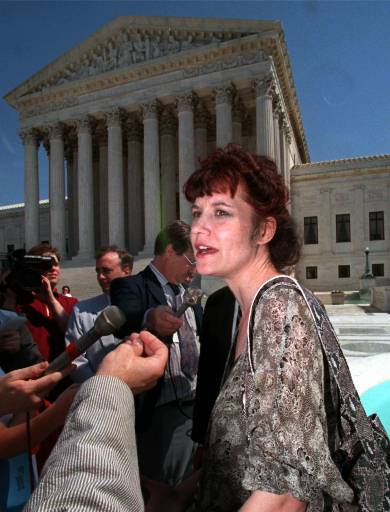In National Endowment for the Arts v. Finley, 524 U.S. 569 (1998), the Supreme Court ruled that an amendment that required standards of decency and respect to be taken into consideration in funding decisions by the National Endowment of the Arts (NEA) was constitutional on its face and did not interfere with artists’ First Amendment rights to free speech.
NEA had to consider decency for any art funded by the program
The case came to the Court as a result of a 1989 amendment, 20 USCS 954(d)(1), to the National Foundation on the Arts and the Humanities Act of 1965. The amendment directed the chairperson of the NEA to ensure that for any artistic endeavor funded by the NEA, “artistic excellence and artistic merit” must include consideration of “general standards of decency and respect for the diverse beliefs and values of the American public.” The process the NEA had developed to award funding to artists pursuant to the 1965 act required applications for NEA grants to be reviewed initially by advisory panels of experts in the relevant artistic field. The panels then reported to the National Council on the Arts (Council), which advised the NEA chairperson.
Finley was denied funding and sued
Before 954(d)(1), an advisory panel had recommended approval of the projects of four performance artists, including Karen Finley, whose graphic performances often involved nudity. The Council subsequently recommended disapproval, and funding was denied after 954(d)(1) went into effect. Finley, other artists, and an artists’ association brought suit to have funding restored by arguing that 954(d)(1) should be ruled unconstitutional. The reviewing federal district and appeals court ruled in favor of the plaintiffs.
Court ruled the law did not violate the First Amendment
The Supreme Court reversed, holding that 954(d)(1) did not facially violate the First Amendment because it imposed no specific categorical requirements that could be seen as viewpoint-based discrimination. Writing for the majority, Justice Sandra Day O’Connor supported this conclusion with a number of points. She wrote that the congressional environment or history in which the “decency and respect” amendment was passed did not support an interpretation of the amendment that it compelled the NEA to deny funding on the basis of viewpoint-discriminatory criteria. The guidelines were clear enough to not be impermissibly vague under the First Amendment. The decency and respect clause was no more vague than the NEA’s mandate to fund “artistic excellence.” The government’s guidelines did not discriminate on the basis of viewpoint; they merely chose to fund one activity to the exclusion of the other. Justice O’Connor added that when the government is acting as a patron, a lack of precision in language is more acceptable than normal.
Justice David H. Souter was the Court’s lone dissenter in the case. He believed that the requirement that the NEA take into account “general standards of respect and decency” amounted to viewpoint-based discrimination.
This article was originally published in 2009. Tom McInnis earned a Ph.D. from the University of Missouri in Political Science in 1989. He taught and researched at the University of Central Arkansas for 30 years before retirement. He published two books and multiple articles in the area of civil liberties and the American legal system.

